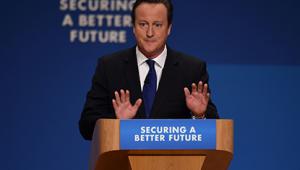7 December 2009
The prime minister has pledged a further £3bn in efficiency savings through what he said would be a radical transformation of Whitehall and of local service provision.
Gordon Brown said one third of the £3bn efficiency gains, which are supplementary to the £9bn identified in the Treasury’s Operational Efficiency Programme, would be achieved by streamlining central government. He said the planned changes would be tantamount to ‘some of the most sweeping changes in administration in this country in half a century’.
The changes include cutting the senior civil service pay bill by up to 20% over the next three years, releasing savings of £100m a year. A further £500m will be generated through the merger or abolition of 123 quangos, including the network of 31 regional committees relating to agricultural workers; merging the Sentencing Guidelines Councils with the Sentencing Advisory Panel; and merging four military museums into a single National Museum of the Royal Navy. The government will also press on with the relocation of staff outside London and the Southeast.
Many of the plans, outlined in Putting the front line first: smarter government, published on December 7, centred on greater use of technology and more devolution to frontline public services.
As well as the changes to Whitehall, government is hoping to save money by moving the majority of public service transactions online. Brown said evidence from local authorities showed that carrying out transactions online could save £3.30 a time over telephone calls and £12 over paper and mail transactions.
Brown said: ‘Our aim is – within the next five years – to shift the great majority of our large transactional services to become online only – and this has the potential to save as a first step £400m but as transaction after transaction goes online, billions more.’
It is also hoped that some of the £600m lost to the NHS each year through missed appointments could be recouped by texting patients to remind them of appointments.
Pressure to provide value for money would also be generated by publishing detailed information on all aspects of public services ‘to encourage feedback and dialogue between professional and citizen’, Brown said.
‘As the country emerges from recession, taxpayers want more than ever to see their contributions used in the same way they manage their own finances: by getting maximum value for money.’
The government is also promising to review the burdens it places on frontline public services, making more reductions to the national indicator set and re-evaluating the burden of inspections. The 2010 Budget will include a review of the work and number of inspectorates.


















